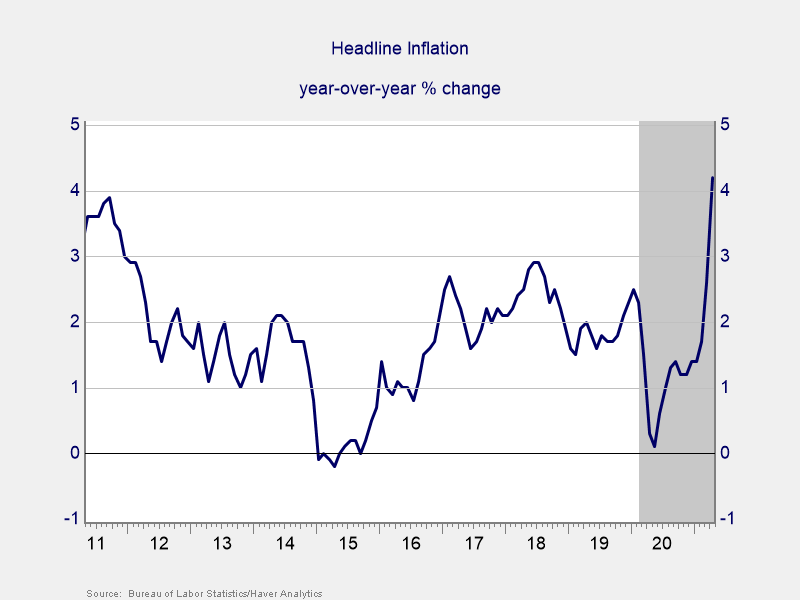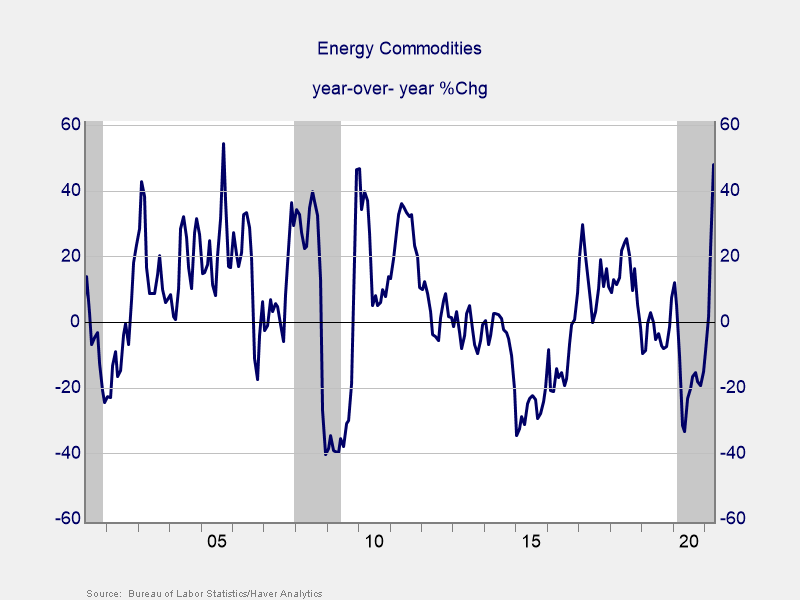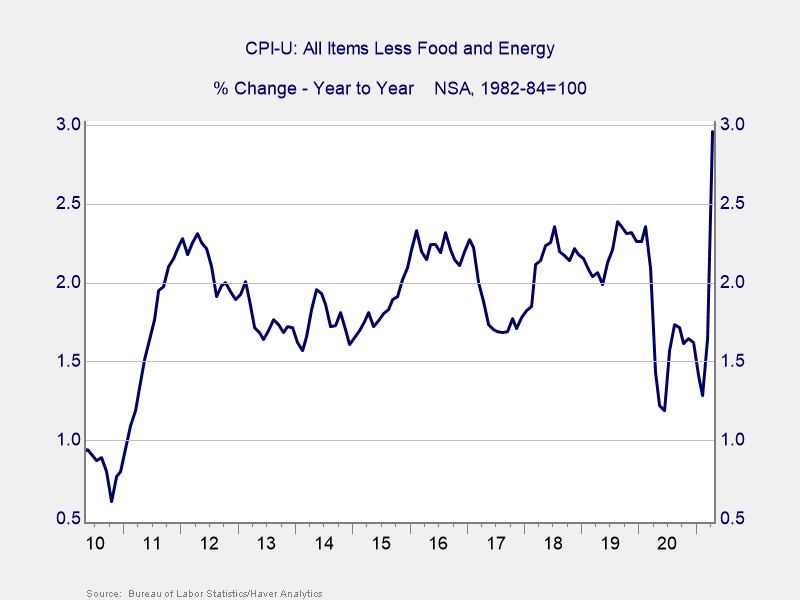In the present day’s put up was cowritten by Peter Essele, vice chairman of funding administration and analysis.
Within the huge image, the inflation we’re now seeing might be a short lived phenomenon, pushed by a a lot quicker restoration from the pandemic than anticipated, mixed with the standard snafus because the world economic system tries to spin up shortly. Certainly, these results are actual.
However earlier than we discover that concept additional, my colleague Pete Essele instructed we first ask a greater query: is that scary inflation print actually as dangerous because it appears to be like? In different phrases, earlier than we begin searching for causes for the issue, maybe we wish to first be certain the issue is actual. And if you break down the numbers? The inflation risk doesn’t look so dangerous in any case.
Pete’s Take
Final week’s inflation print (Shopper Value Index or CPI) got here in at 4.2 p.c year-over-year, the biggest improve since 2008. Buyers at the moment are questioning if maybe it is sensible to start shopping for inflation-sensitive property like TIPS (U.S. Treasury inflation-protected securities), commodities, and treasured metals. Earlier than doing so, it’s vital to know the numbers as a result of, like many financial knowledge factors, the satan’s within the particulars. Let’s take a look.
Headline inflation. Though the 4.2 p.c rise in costs over the previous 12 months was a noteworthy print, the numbers recommend that it wasn’t a broad-based improve throughout all items and providers. In reality, of the most important expenditure classes used to calculate the headline quantity, just a few got here in above 4.2 p.c. Vitality commodities, used vehicles and vans, and transportation providers (particularly, airfare and automobile insurance coverage) stood out, which noticed yearly worth will increase of 47.9 p.c, 21 p.c, and 5.6 p.c, respectively. All different main expenditures have been consistent with long-term averages. The three aforementioned classes account for under 12 p.c of the CPI basket of products and providers. As a result of they skilled such vital will increase, the general headline quantity was pulled increased, touchdown above latest averages. The biggest part of CPI (shelter) got here in at 2.1 p.c, in contrast with a 10-year common of two.76 p.c.

Vitality commodities. What additionally must be thought of within the numbers, particularly for power commodities, is that present costs are being in contrast with a very low base, which makes year-over-year values look vital. As an example, the worth of oil at present stands at pre-COVID ranges ($62 per barrel) after plunging to low double digits in April 2020 because the economic system got here grinding to a halt. With enhancements within the financial surroundings as of late, costs have began to normalize from historic lows. Due to this fact, a prudent investor ought to assess present worth ranges in contrast with long-term averages and never take the year-over-year will increase at face worth.

Brad Breaks It Down
Thanks, Pete. For individuals who acquired misplaced within the numbers, most gadgets within the CPI got here in below, in lots of circumstances effectively below, the 4.2 p.c headline quantity. That scary print was largely as a consequence of a handful of classes that spiked, notably power, after collapsing final 12 months. In different phrases, that scary quantity was a one-off.
Core inflation. A less complicated approach to have a look at it’s to take out meals and power from the headline quantity, which will get us to what’s referred to as core inflation. If we take a look at that, the 4.2 p.c turns into 2.96 p.c, which remains to be not nice however is significantly much less scary than the preliminary headline quantity. Vitality alone accounts for quite a lot of the rise, and that’s as a result of collapse and rebound in costs over the previous 12 months.

General change in worth. All effectively and good, I hear you say, however I have to warmth my house and gas my automotive. I can’t take out power! Truthful sufficient. So let’s take out the power worth plunge final 12 months and the restoration this 12 months by going again and seeing what the general change in costs has been over the previous two years. And what we see, within the chart under, is that costs are up about 4 p.c general since two years in the past, which is about the identical as we noticed in 2018 and 2019. In the event you take out the pandemic results, inflation appears to be like very similar to it did in 2019. This isn’t a surge in inflation; relatively, it’s a return to regular. Pete was fairly proper to ask the query as a result of after we dig into the small print, inflation will not be practically as scary because the headline quantity would recommend.

Inflation Not That Sizzling
Now there are indicators that inflation may rise within the coming years. The infrastructure issues are actual and can want time to right. Labor shortages would possibly change into extra widespread, which may drive up inflation. And as globalization slows or reverses, inflation may also possible rise. These are actual considerations to look at for over the following couple of years.
However that’s not what is going on now. While you dig into the numbers, inflation merely isn’t that sizzling. While you look over an extended interval than the trough to peak of the previous 12 months, once more, inflation merely isn’t that sizzling. And when you think about the true issues the worldwide economic system is coping with, the shock is that inflation will not be increased.
As soon as once more, stay calm and keep it up.
Editor’s Notice: The authentic model of this text appeared on the Impartial Market Observer.

